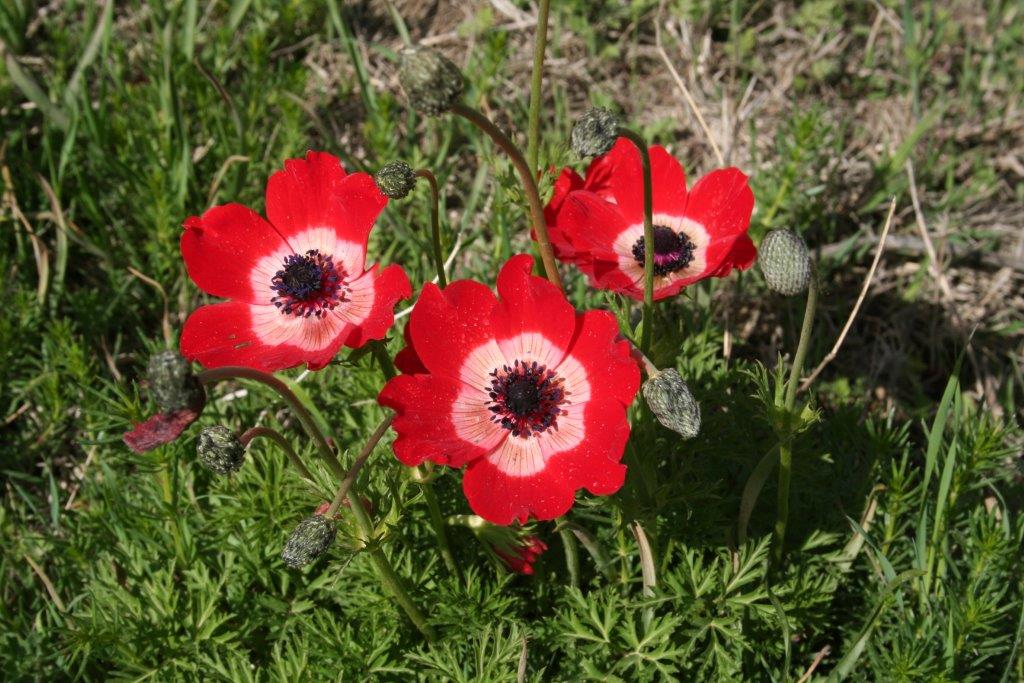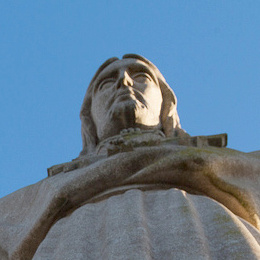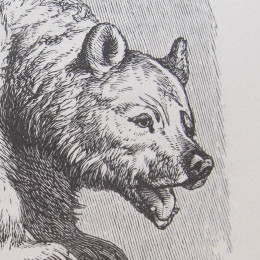Why we need the wisdom of Solomon
Today’s environmental problems are so complex they often seen intractable. To tackle them, we need not only politics and economics, science and technology. We also need great wisdom to move towards a more sustainable and just world. But where can we find it?

King Solomon was renowned for his wisdom. In response to God’s astonishing offer, ‘Ask for whatever you want me to give you,’ he could have requested security, prosperity, health or happiness, but instead chose wisdom. As a result, ‘God gave Solomon wisdom and very great insight, and a breadth of understanding as measureless as the sand on the seashore.’ Today we tend to think of wisdom as primarily self-knowledge and understanding of human society. Whilst Solomon could judge human dilemmas wisely (as in the famous example of the two women who both claimed a baby was theirs) the heart of his wisdom lay elsewhere.
Professor Ellen Davis, writing about Proverbs, says ‘wisdom means holding two things together: discerning knowledge of the world plus obedience to God’ (Davis, p. 43). Christians are familiar with the second of these from the familiar biblical adage: “The fear [reverent awe] of the Lord is the beginning of Wisdom” (Proverbs 1:7, Psalm 111:10), but what about ‘discerning knowledge’ of the natural world?
According to 1 Kings 4:33-34, Solomon was a dedicated naturalist: ‘He spoke about plant life, from the cedar of Lebanon to the hyssop that grows out of walls. He also spoke about animals and birds, reptiles and fish. From all nations people came to listen to Solomon’s wisdom, sent by all the kings of the world, who had heard of his wisdom.’ At the heart of the wisdom of Solomon was close, detailed observation of the flora and fauna of the ancient Near East. Just as Jesus instructed his followers to become botanists and ornithologists in order to live worry-free lives, so Solomon’s wisdom was rooted not in books or philosophical discussion but in deep immersion in God’s works.
Throughout Christian history there are examples of those who took Solomon’s path of natural wisdom. The Desert Fathers and the early Celtic saints combined meditating on God’s revelation in nature and scripture. Francis of Assisi embodied a Christocentric spirituality that recognised other creatures as fellow members of the community of creation. John Ray, Gilbert White and William Carey are amongst many others whose wisdom arose from a deep contemplation of the wonders of God’s world.
Today we need to recover this kind of wisdom. Outdoor field studies should be a part of the educational curriculum for every young person. Studying ecology and wildlife to a professional level needs to be affirmed as a holy and important Christian calling. However, studying nature cannot be left to scientists alone. What is required for wisdom is not only the detached rational enquiry of science but also the immersed, meditative contemplation of artists and poets.
Ellen Davis says, ‘It is regrettable that the church has in the last three centuries largely lost sight of the fact that “nature wisdom” is indispensable to an accurate estimation of the proper human role in God’s creation. Perhaps the time has at last come for the revival of this branch of theology’ (Davis, p. 56). In an increasingly globalized, virtual and digital world, all who would seek wisdom need a close attention to their environment. Getting to know the local species and habitats should be part of worship and godly wisdom for every Christian. We cannot understand God’s character and purposes without looking at what God has made. We cannot understand what it means to be human unless we know how ecosystems function and how we belong within them. Jesus humorously pointed out that wayside flowers were better-dressed than even King Solomon. We cannot find wisdom second-hand by reading books by wise people. We find wisdom by seeking God and by getting to know our place, within the places where God has placed us.
Davis, Ellen F. Proverbs, Ecclesiastes, and the Song of Songs. Louisville, KY: Westminster John Knox, 2000.
We are happy for our blogs to be used by third parties on condition that the author is cited and A Rocha International, arocha.org, is credited as the original source. We would be grateful if you could let us know if you have used our material, by emailing [email protected].




Solomon had no telescopes or microscopes to expand his view of the universe and show him the connections between us and the microbial life within us and in the soil and the sea. No one had shown that the air is made up of a variety of gases and a fair amount of water vapour not actually in cloud form. Now that we are learning about all this it is sheer foolishness to go on polluting air and earth and fresh water and sea. The more we understand how wonderfully it is all made and go on discovering how there are things about it that make it easy to move on from fossil fuels and inefficient engines to better things the more foolish it seems to drag our feet. . See Song of Songs 3:9,10 for how Solomon had the latest model litter to take his girl friend out! Nothing but the best for God,s temple and those who worshipped there!
Sorry about how forced labour and too many girl friends led to trouble later on, but with the Kingdom of Heaven in view wisdom tells us to avoid such distractions and go for it.
I hadn’t realised before reading this post how much of Solomon’s wisdom was rooted in understanding of the natural world.
Psalm 111, which you refer to with regard to fear of the Lord being the beginning of wisdom, also says in verse 2 “Great are the works of the Lord, studied by all who delight in them.” The appreciation of these “works of the Lord”, fear of the Lord” and “wisdom” are closer than I realised. Thank you, David.
I also appreciated your sentence “Outdoor field studies should be a part of the educational curriculum for every young person.” Absolutely!
I agree!
Jim, I totally agree. Despite the much greater knowledge that science has given us about what we’re doing to the planet, we’re actually destroying it faster and faster. It shows the truth of T. S. Eliot’s lines in ‘Choruses from the Rock’:
“Where is the wisdom we have lost in knowledge?
Where is the knowledge we have lost in information?
The cycles of Heaven in twenty centuries
Bring us farther from GOD and nearer to the Dust.”
Hi Francis! Yes Psalm 111 clearly shows the link between these twin biblical pillars of wisdom – Fear of the Lord, and study of the ‘works of the Lord’. I especially like the word ‘ponder’ in terms of how we are to approach nature-study (Psalm 111:2). This suggests not only dissection and analysis, but careful, reflective contemplation, accompanied by a sense of awe and wonder, with an expectancy that God will speak to us through what he has made. What a wonderful God, who is gracious and compassionate towards ALL that he has made (Psalm 145:9)! If only those made in God’s image reflected such grace and compassion to all creatures …
Dave, I admire your knowledge of T.S.Eliot, but just now I am trying to persuade people to go beyond the gloom and doom message and do a little dreaming of what a world we could have if we really turned from our old fashioned and inefficient engines and wasteful practices and took advantage of what is being revealed to us. Jeremiah got a name for being gloomy but every second page tells of what a great world it would be if people would just listen to God’s plan.
Our local A Rocha branch in Auckland does some trapping of rats and stoats to save native bird life, and some planting and weeding along streams. Next we are looking at a seaside activity and could get a scientist to teach us things or have a go at the plastic in the sea.
[…] Texto original em https://blog.arocha.org/post/why-we-need-the-wisdom-of-solomon/ […]